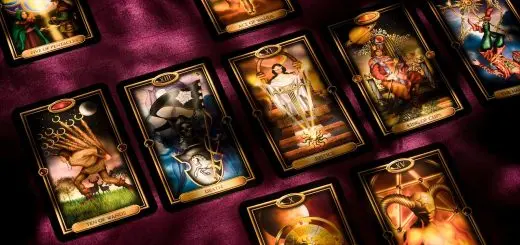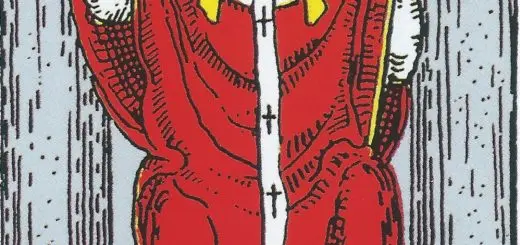Tarot Four of Swords: A Call to Rest and Reflect

Looking for more amazing products? Check out our online store and explore our collection here! Happy shopping!
Before diving in, please note: This post is for informational purposes only. If you’d like to know more about how we approach topics, feel free to check out our friendly Disclaimer Page.
Hey there, amazing readers! 
We’re committed to delivering quality posts, and your support (even just sticking around despite the ads) means everything to us. So, bear with us, and thanks for helping us keep the good vibes rolling. Now, on to the fun stuff!
TRANSLATE BUTTON AT THE END OF THE ARTICLE
A Quick Overview
The Four of Swords is a powerful card in the Tarot that invites us to take a step back and breathe.
It’s not just about taking a nap; it’s about a genuine call to rest and reflect.
Life can be a whirlwind of activity, responsibilities, and obligations, and sometimes we push ourselves to the limit.
But what if, instead of rushing headlong into our next task, we paused to recharge?
This card serves as a gentle reminder of the importance of taking a break and reconnecting with our inner selves.
In this article, let’s explore the nuances of the Four of Swords, its symbolism, and how it can guide us in our daily lives.
Understanding the Four of Swords: A Brief Overview
The Four of Swords typically depicts a figure lying on a tomb or a bed, often with three swords above and one below.
It suggests a period of rest, contemplation, and mental recovery.
Traditionally, this card corresponds to the element of Air, which governs thoughts and intellect.
When this card appears in a reading, it often indicates a time for introspection, suggesting that the querent might need a break from the hustle and bustle of everyday life.
This card doesn’t imply that things are going wrong; rather, it symbolizes a necessary pause.
The image encourages us to take a moment to recharge our mental batteries.
When life feels overwhelming, this card is a solemn invitation to step away briefly, gather our thoughts, and understand our next steps.
The Symbolism Behind the Four of Swords Card
The imagery in the Four of Swords is rich with meaning.
Let’s break it down:
The Figure: Lying down depicts vulnerability but also peace.
It signifies surrendering to the need for rest.
The Swords: These represent thoughts and challenges.
Three swords above indicate mental strain, while the one below signifies a need to confront these challenges at a later time.
The Tomb: This symbolizes a temporary retreat, much like going into hibernation.
It’s not about ending something; it’s about renewal.
Each element of this card speaks to the overarching theme of taking a mental health day, recharging, or even healing from emotional wounds.
This card encourages us to acknowledge that rest is not an act of laziness but an essential part of growth.
Historical Context: Roots of the Four of Swords
Historically, the Tarot dates back to the late 14th century in Europe, evolving from a mere card game to a tool for divination.
The Four of Swords can trace its lineage through various decks, often retaining its core message of rest and reflection.
In different cultures, the symbolism of swords has often been linked to battles, both external and internal.
The Four of Swords specifically taps into the idea of fighting fatigue and stress.
In the Middle Ages, knights would often take a pause between battles to recuperate.
The Four of Swords embodies that same idea: before jumping into another challenge, one must rest to prepare for the next encounter.
The card has maintained this message over centuries, echoing the need for balance in life.
Major Themes: Rest, Recovery, and Contemplation
The Four of Swords encapsulates several vital themes:
Rest: Sometimes, doing nothing is the most productive choice.
It’s a chance to recharge those mental batteries.
Recovery: This card signifies healing, be it physical, emotional, or mental.
It encourages us to take the necessary steps to mend.
Contemplation: It’s a call to think deeply about our circumstances.
Reflecting on our choices can lead to better decision-making.
These themes remind us that life isn’t just about action; it includes moments of stillness.
It’s in these moments we often find clarity about our life’s direction.
How the Four of Swords Guides Us to Reflect
The Four of Swords serves as a gentle nudging towards introspection.
When I pull this card, I often think of it as a sign to ask myself some important questions:
What’s been weighing heavily on my mind lately?
Am I taking enough time for myself?
How can I better balance my responsibilities with my personal well-being?
This card encourages us to step back and assess our mental landscape.
By allowing ourselves the time and space to reflect, we can gain clarity on our feelings and thoughts.
It’s about digging deep, understanding our motivations, and discovering what truly matters to us.
The Importance of Taking Breaks in Daily Life
Life is busy, and we often prize productivity above all else.
However, taking breaks is essential for maintaining mental health.
Research shows that regular breaks can lead to increased creativity and problem-solving abilities.
Here are a few reasons why breaks are crucial:
Improved Focus: Short breaks can actually enhance our concentration when we return to work.
Enhanced Creativity: Stepping away from a task allows our minds to wander, often leading to innovative ideas.
Increased Productivity: By recharging, we can tackle our tasks more efficiently.
So, next time you’re feeling overwhelmed, think of the Four of Swords.
It’s not a sign of weakness to take a break; it’s a strategy for long-term success!
Practical Tips for Implementing Rest and Reflection
Integrating periods of rest and reflection into your daily routine doesn’t have to be complicated.
Here are some practical steps to consider:
Schedule Downtime: Block off time in your calendar just for you, no distractions allowed.
Create a Calm Environment: Designate a peaceful space in your home where you can unwind.
Engage in Mindfulness Practices: Simple breathing exercises or guided meditations can help you center yourself.
Limit Digital Distractions: Take breaks from screens to give your brain a rest.
Journal Your Thoughts: Writing can be a powerful way to process your feelings and thoughts.
Connect with Nature: Spend time outdoors to rejuvenate your mind and spirit.
Prioritize Self-Care: Engage in activities that make you happy, even if they seem trivial.
Practice Saying No: Let go of obligations that drain your energy.
Seek Support: Sometimes, sharing your feelings and thoughts with a friend can lighten the load.
Be Gentle with Yourself: Remember that it’s okay to rest; it’s a vital part of being human.
Meditation Techniques Inspired by the Four of Swords
Meditation can be a fantastic way to embody the energy of the Four of Swords.
Here are some techniques to consider:
Guided Visualization: Imagine yourself in a peaceful setting, like a serene forest or a calm beach.
Focus on your breathing and let the tranquility wash over you.
Body Scan: Lie down comfortably and focus on each part of your body, releasing any tension as you go along.
Mindful Breathing: Set a timer for a few minutes.
Inhale deeply, hold for a moment, and exhale slowly.
Repeat.
Gratitude Reflection: Take a moment to think of three things you’re grateful for.
This can shift your mindset and bring positivity.
These techniques can help you tap into the restorative energy of the Four of Swords and bring it into your life.
Interpreting the Card in Love and Relationships
When it comes to love, the Four of Swords suggests a period of healing and reflection within relationships.
If you’re feeling overwhelmed or strained, this card advises taking a break from arguing or debating.
Here are a few insights into how this card might play out in romantic contexts:
Time Apart: Sometimes, a little space can provide clarity on feelings.
Personal Reflection: It may be worth reflecting on what you truly want from the relationship.
Healing Old Wounds: If past issues are resurfacing, this card encourages addressing and healing them.
Communication is vital, especially during these periods of introspection.
Sharing your need for a breather can strengthen your connection.
Career Insights: When the Four of Swords Appears
In a professional context, the Four of Swords indicates the need for a break.
Here’s what it may mean for your career:
Avoid Burnout: If you’re feeling overwhelmed, it’s a red flag.
Listen to your body.
Reflect on Your Path: Are you happy with where you’re headed?
Take the time to evaluate your goals.
Take a Mental Health Day: Don’t hesitate to use your personal days for self-care.
Encourage Team Well-Being: Advocate for a culture of rest in your workplace.
Recognizing when to step back is a mark of maturity and awareness in your career.
Leveraging the Four of Swords for Personal Growth
The Four of Swords is also a fantastic ally in personal growth.
By embracing its message, you can:
Cultivate Self-Awareness: Understand your triggers and stressors.
Set Healthy Boundaries: Knowing when to say no is a powerful skill.
Embrace Stillness: Learn to appreciate moments of quiet and solitude.
Foster Resilience: Use your downtime to recharge and come back stronger.
Personal growth isn’t a race; it’s about taking the time to evolve at your own pace.
Embracing the Call to Rest: A Journey to Wellness
In a world that often glorifies busyness, the Four of Swords reminds us that rest is just as important as productivity.
It’s about balance.
I’ve learned that taking time to recharge doesn’t hinder my progress; it actually propels me forward.
So, the next time you pull the Four of Swords, remember its profound message.
Resting isn’t a luxury; it’s a necessity.
Let’s embrace this call to rest and reflection together.
By doing so, we not only honor our mental health but also open ourselves up to new insights and possibilities.
It’s a beautiful journey, one where we learn that sometimes, the best way to move forward is to first take a step back.
Conclusion
The Four of Swords is like a gentle nudge from the universe, urging us to take a moment for ourselves.
It’s a card that teaches us the importance of rest, recovery, and reflection in our fast-paced lives.
Whether in love, work, or personal growth, honoring this need for downtime can lead us to a more balanced and fulfilling life.
So, let’s remember to take a break, reflect, and embrace the journey of self-discovery.
After all, in the quiet moments, we often find our greatest strength.

The Enlightenment Journey is a remarkable collection of writings authored by a distinguished group of experts in the fields of spirituality, new age, and esoteric knowledge.
This anthology features a diverse assembly of well-experienced authors who bring their profound insights and credible perspectives to the forefront.
Each contributor possesses a wealth of knowledge and wisdom, making them authorities in their respective domains.
Together, they offer readers a transformative journey into the realms of spiritual growth, self-discovery, and esoteric enlightenment.
The Enlightenment Journey is a testament to the collective expertise of these luminaries, providing readers with a rich tapestry of ideas and information to illuminate their spiritual path.
Our Diverse Expertise
While our primary focus is on spirituality and esotericism, we are equally passionate about exploring a wide range of other topics and niches 

To ensure we provide the most accurate and valuable insights, we collaborate with trusted experts in their respective domains 
Our blog originally focused on spirituality and metaphysics, but we’ve since expanded to cover a wide range of niches. Don’t worry—we continue to publish a lot of articles on spirituality! Frequently visit our blog to explore our diverse content and stay tuned for more insightful reads.
Hey there, amazing reader! 
Check out our store here and take a peek at some of our featured products below! Thanks for being awesome!











